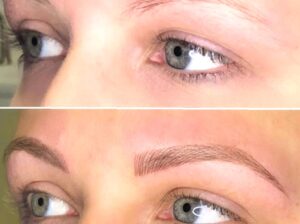As the cold season rolls in, many people mistakenly believe that sunscreen is only necessary during the bright, sunny days of summer. However, the importance of winter SPF cannot be overstated. While the sun’s rays may feel less intense in winter, they can still cause significant skin damage. Just because it’s cold outside doesn’t mean UV rays are taking a break. In fact, UV radiation can penetrate clouds and reflect off snow, increasing your risk of sunburn and long-term skin damage. Therefore, incorporating an effective sunscreen into your winter skincare routine is crucial for maintaining skin health.

The Effects of UV Rays in Winter
During winter, the sun’s rays are still capable of penetrating the atmosphere, reaching your skin even on overcast days. In fact, studies show that up to 80% of UV rays can pass through clouds. Additionally, if you live in areas with snow, the situation is even more dire. Snow can reflect up to 80% of UV rays, increasing your overall exposure significantly. This amplified exposure can lead to skin issues such as premature aging, sunspots, or even an increased risk of skin cancer. Furthermore, higher altitudes, where snow is more prevalent, correspond with a thinner atmosphere, making UV rays even stronger. Thus, winter SPF is essential in preventing the adverse effects of UV radiation on your skin.

Choosing the Right SPF for Winter
Selecting the right sunscreen for winter is vital for optimal protection. Look for a broad-spectrum sunscreen that blocks both UVA and UVB rays. Choose a product with an SPF of at least 30 to ensure adequate protection. Ingredients such as zinc oxide or titanium dioxide are excellent options as they provide a physical barrier against the sun’s harmful rays. Additionally, consider using a sunscreen that is water-resistant if you plan to engage in winter sports such as skiing or snowboarding. When applying sunscreen, don’t forget high-risk areas like your ears, the back of your neck, and even your scalp if you have thinning hair. Remember to reapply every two hours, or more frequently if you’re sweating or swimming.

Winter SPF Tips
To maximize the benefits of winter SPF, follow these helpful tips:
- Apply Generously: Use about one ounce of sunscreen, roughly the amount you would use for a shot glass, for full-body coverage.
- Don’t Skip the Lips: Opt for a lip balm with SPF to protect your lips from cracking and sun damage.
- Layering is Key: Apply sunscreen beneath your regular moisturizer or makeup to ensure you’re getting sufficient protection.
These tips will enhance your protection against UV radiation during the winter months. Keep in mind that the skin can still get damaged, despite the cooler temperatures; therefore, being vigilant with your sunscreen application is critical.
Other Protective Measures
In addition to using winter SPF, there are several other measures you can take to protect your skin from the harsh effects of winter weather. First, consider wearing protective clothing when outdoors, such as hats with brims, sunglasses, and long sleeves, which can guard against UV exposure. Additionally, maintaining a robust skincare routine that includes moisturizers or oils can help combat the dryness that winter brings. Hydration is key, as dry skin is often more susceptible to damage. You might also want to look for products that contain antioxidants, such as vitamins C and E, which can help protect the skin from environmental stressors. Lastly, keeping your skin nourished from within by drinking plenty of water will support overall skin health.

Conclusion
Ultimately, the importance of winter SPF cannot be overlooked. The sun may not seem as intimidating during these cooler months, but the reality is that UV rays are still present and can lead to severe damage over time. By incorporating a robust sun protection strategy, including choosing the right SPF, employing protective measures, and maintaining an effective skincare routine, you can enjoy winter while keeping your skin safe and healthy. Don’t let the cold fool you; skin protection is a year-round commitment.
FAQs
Yes, up to 80% of UV rays can penetrate clouds, making it essential to wear sunscreen even on overcast winter days.
2. Is SPF 30 sufficient for winter sports?
SPF 30 is generally recommended, but you may want to choose a higher SPF if you engage in prolonged outdoor activities, especially in snowy conditions.
3. Can I use my summer sunscreen in the winter?
Yes, but ensure it provides adequate protection (broad-spectrum and high SPF) and is suitable for your skin type and conditions.
4. How often should I reapply sunscreen in winter?
Reapply every two hours or more frequently if sweating or after swimming, just like in warmer months.
5. What should I look for in a winter moisturizer?
Look for a moisturizer that contains hydrating ingredients like hyaluronic acid, glycerin, and emollients that can help combat winter dryness while also protecting the skin.



